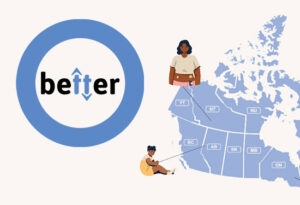.jpg)
Learning you have diabetes is never welcome news, but it can be even more disconcerting when you’re mistakenly diagnosed with the wrong type.
A new study by Dr. Nick Thomas and his colleagues at the University of Exeter (UK) reveals that 20% of adults who develop type 1 diabetes (T1D) over the age of 30 appear to be initially diagnosed with type 2 diabetes instead.
While the research was largely based on self-reported diagnoses, distinguishing between the two conditions has often proved challenging for clinicians, especially among older adults who exhibit common diabetes symptoms.
Dr. Thomas and his team looked at 583 people over the age of 30 who were on insulin therapy. In order to determine whether they had been accurately diagnosed and given correct treatment for T1D, researchers measured how much C-peptide the participants were producing. A by-product of insulin, C-peptide is made of chemical compounds called amino acids and is generally found in amounts equal to insulin in the blood. A higher C-peptide measurement is indicative of type 2 diabetes, whereas lower C-peptide is associated with T1D.
122 of the 583 adult participants had a severe insulin deficiency according to their C-peptide levels, suggesting T1D. Among them, 38% didn’t receive insulin at diagnosis. In addition, only 79% of these adults reported they had T1D, while 20% stated they had type 2 diabetes, confirming the notion that T1D is still largely misdiagnosed.
The findings were presented at the European Association for the Study of Diabetes’ (EASD) 2018 Annual Meeting in early October. Stressing the need for clearer guidelines to make a proper diagnosis of diabetes, the team at Exeter University is currently working on a tool that will allow clinicians to establish whether a person is likely to have type 1 or type 2 diabetes, so that he/she can receive appropriate treatment without delay and avoid complications.
Even though T1D starting in adulthood is less common (approximately 20% of Canadians living with T1D are diagnosed as adults), the rising cases of misdiagnoses highlight the need for greater public awareness of the disease.
If you have been diagnosed with type 2 diabetes, but are not responding to treatment, consider discussing the possibility of further testing with your healthcare professional.
For more informative articles on health and type 1 diabetes, visit our JDRF Blog.




